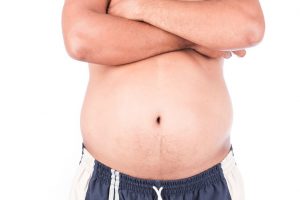
For the study, 36 lean men were randomized to a hypercaloric diet or a eucaloric control diet (balanced diet) for six weeks.
The study found that those who ate the high-calorie diet had a greater body mass index. Furthermore, eating frequent meals increased intrahepatic triglyceride content (IHTG), but having larger meals did not. A decrease in liver insulin sensitivity was found in the high fat/high sugar frequency group.
Dr. Serlie concluded, “Our study provides the first evidence that eating more often, rather than consuming large meals, contributes to fatty liver independent of body weight gain. These findings suggest that by cutting down on snacking and encouraging three balanced meals each day over the long term may reduce the prevalence of NAFLD.”
Tips for healthy eating with non-alcoholic fatty liver disease
To benefit from a non-alcoholic fatty liver disease (NAFLD) diet plan, you need to eat balanced and healthy meals. For starters, you need to be careful about the types of fat you eat. It’s important that you avoid saturated and trans fats, as these can worsen liver health. NAFLD patients are often prescribed a low-fat diet. You should consume unsaturated fats, which are fats that are liquid at room temperature.
Healthy fats include olive oil, safflower oil, corn oil, and canola oil. Nuts and seeds are good sources of healthy fats, too, along with fish and avocados.
Another component of a NAFLD diet plan is reducing your salt intake as it further contributes to fluid retention. Patients should adhere to less than 1,500 mg of salt a day – half a teaspoon. You will need to pay close attention to food labels, so that you know how much salt a product has.
Patients must also be mindful of their protein intake and the sources of protein. Typically, one gram of protein is required for one kilogram of weight. For example, if a person weight 60 kg (140 pounds), they require 60 grams of protein.
Healthy sources of protein can be found in lean fish, poultry, or meat, as well as some dairy products, nuts, and plants.
Carbohydrates are necessary as they provide energy. They can be derived from grains and starchy vegetables. Avoid packaged goods like cookies and cakes as well as fried foods.
Ideal meals should include vegetables, seafood, poultry, eggs, and legumes. You can even consume protein powders. Danger foods include candies, processed food, pizza, “diet” foods that claim to make you thinner, foods that contain flour, fried food, foods high in sugar and salt, alcohol, saturated and trans fats, and bagels or muffins.
Your doctor will further guide you on a NAFLD diet plan or you can work closely with a nutritionist or dietician to work out an appropriate diet to promote liver health.